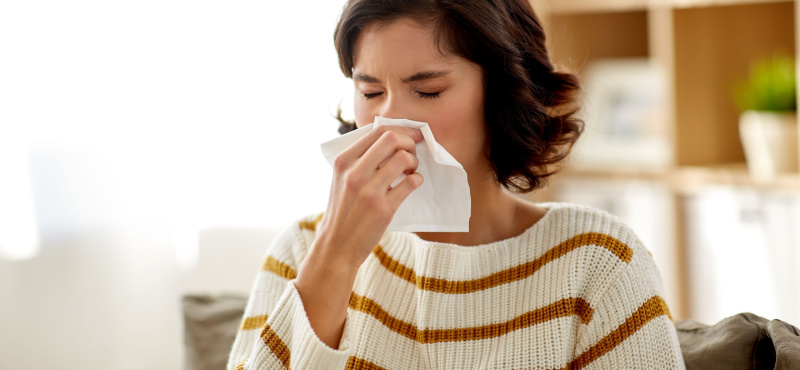Moisture and humidity levels tend to increase during the warmer months, creating an ideal environment for mold, pollens, and other contaminants to invade our homes. Regular cleaning, including dusting, vacuuming, and air purifying, can significantly improve indoor air quality. especially during allergy season.
A clean living environment is not only beneficial for managing allergies but also promotes overall well-being. Reduced exposure to allergens and irritants can contribute to better sleep quality, improved respiratory health, and enhanced overall comfort, especially during allergy season. If you have senior members, children, or pets in your house, cleaning becomes all the more vital. Here are some tips and tricks for allergy-proofing your living space:
Regular Cleaning
Regular cleaning during allergy season is essential for minimizing allergens in your home and reducing the impact of seasonal allergies. You must dust surfaces, including furniture, shelves, and other household items, using a damp cloth or a microfiber duster to remove dust and other allergens that may have settled on these surfaces.
Windows and Doors
During peak pollen seasons, our windows and doors are the primary inlets for allergens. It is advised to keep your windows and doors closed to minimize the influx of outdoor allergens, such as pollen, into your home. Closed windows help maintain better control over the indoor air quality, preventing the circulation of outdoor allergens and pollutants. This can be especially beneficial for individuals with respiratory issues and allergies.
Reduce Indoor Plants
During allergy season, it can be beneficial to reduce the number of indoor plants in your living space, as some plants can potentially harbor mold and produce pollen, which may worsen allergy symptoms. Instead, ppt for indoor plants with low pollen production, such as ferns, palms, and certain types of orchids. These plants are less likely to trigger allergies compared to high-pollen varieties like certain flowering plants and grasses.
Air Purifiers
If someone in your house is sensitive to pollens and/or dust, you must use an air purifier with a high-efficiency particulate air (HEPA) filter, as it can effectively trap a wide range of airborne allergens, including pollen, pet dander, dust mites, and mold spores. Place the air purifier in the rooms where you spend the most time, such as the bedroom or living room.
Humidity Control
Controlling humidity levels in your home during allergy season is crucial for minimizing the growth of mold and dust mites, both of which can exacerbate allergy symptoms. Maintain a humidity level between 30-50% to inhibit the growth of mold and dust mites. Dehumidifiers and air conditioners can help control indoor humidity levels.
Keep Windows Closed
During peak pollen seasons, keep windows closed to prevent pollen from entering your home. Use air conditioning with a clean filter to circulate air.
Regular Pet Grooming
Regularly groom and bathe pets to reduce dander and loose fur. Limit their access to furniture and bedrooms to minimize allergens in those areas.
Bedding and Fabrics
Washing your bedding, including sheets, pillowcases, and blankets, in hot water at least once a week to remove allergens such as dust mites and pollen is also equally important. By incorporating these regular cleaning practices into your routine during allergy season, you can create a cleaner and more allergen-free environment.
Work with Tidy Team
Maintaining your home during the allergy season in all regards can take a lot more than routine dusting and vacuuming. To ensure that your home is free of allergens like pollen, dust, and mold, thorough and regular cleaning must be a part of your cleaning schedule. If you’d rather have a professional cleaning team take care of these tasks, speak with Tidy Team today. We offer various cleaning services to commercial and residential sectors including emergency cleaning, office cleaning, pressure cleaning, and more. Call us today!

